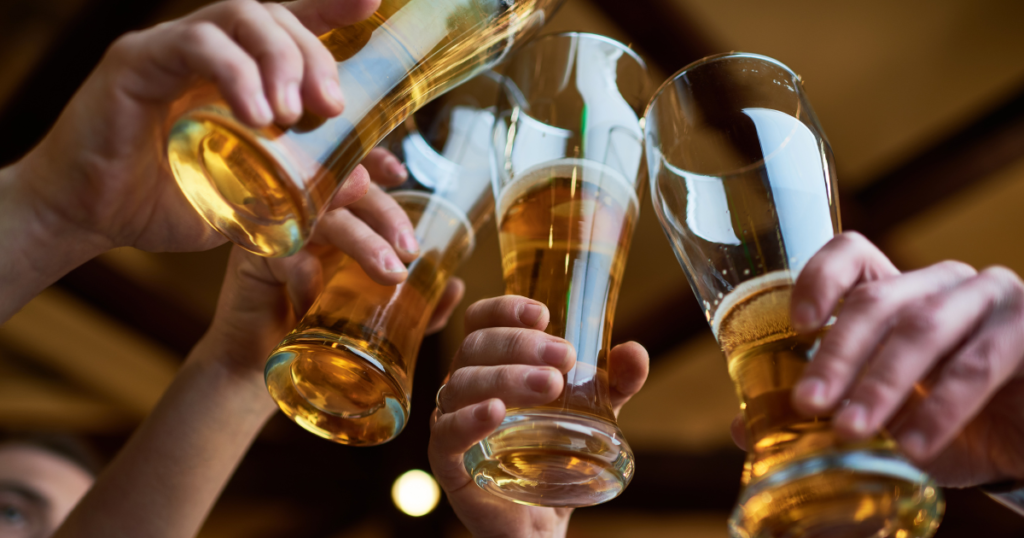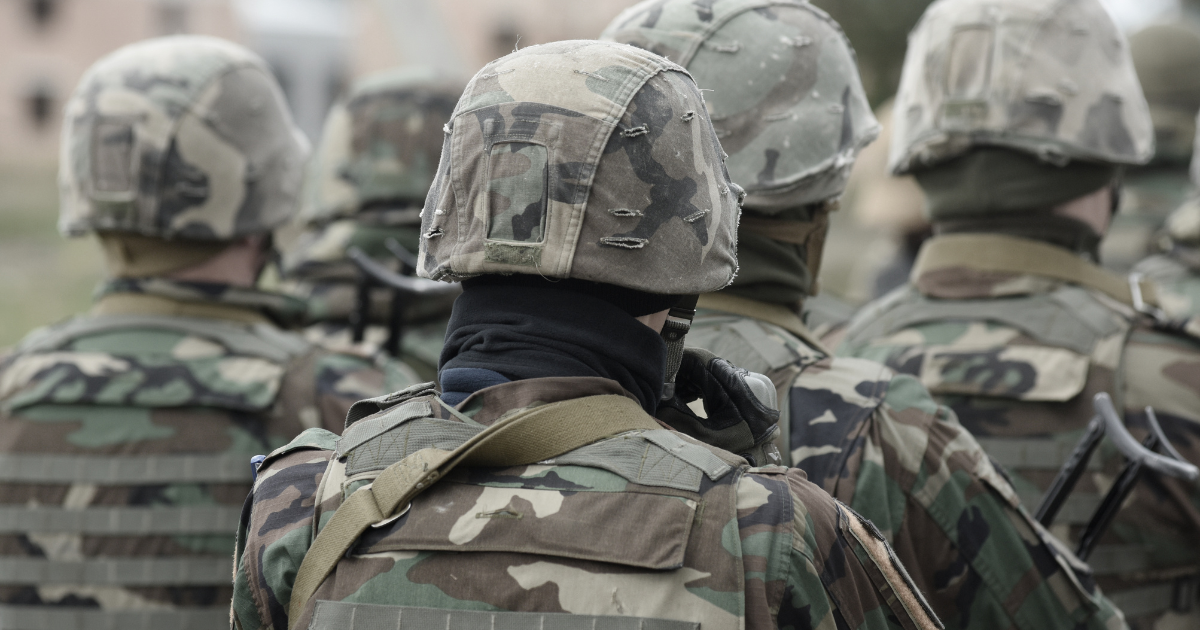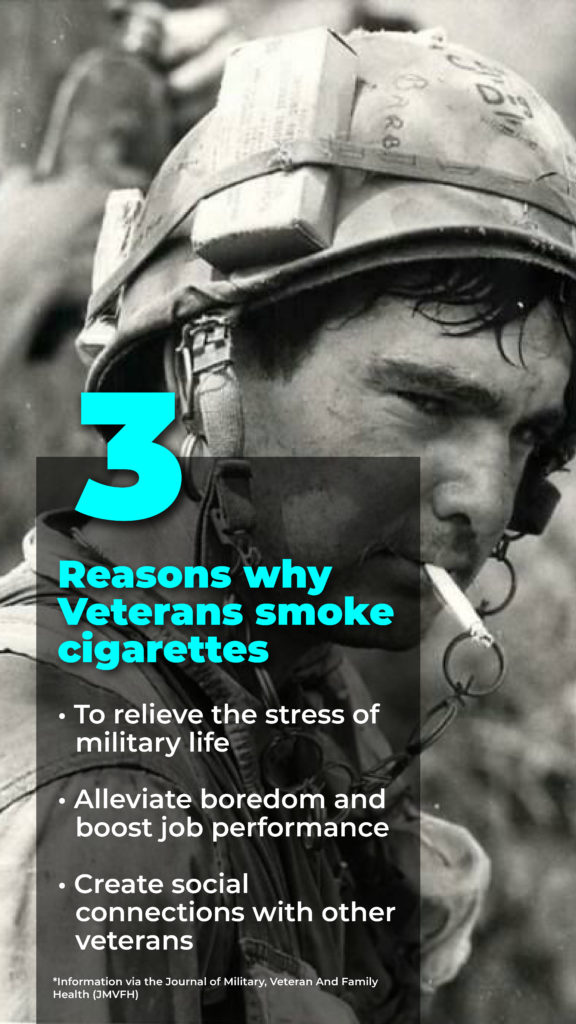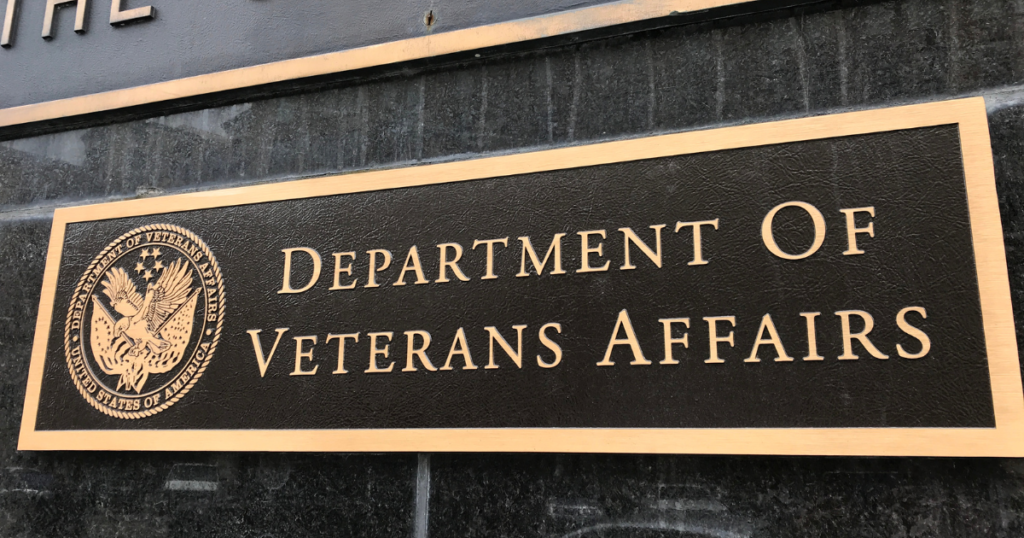Updated: December 1, 2022, at 10:53 a.m.
Drug and alcohol addiction is a significant problem facing America’s military veterans. Approximately 11% of veterans meet the criteria for substance use disorder (SUD). Excessive use of any drug can lead to negative social and health consequences for military members that last long after their service time has ended. However, data reveals that the most common substance use problems among male and female veterans include heavy drinking and cigarette smoking.
Related: 5 Causes of Substance Use Disorder in Veterans
Why alcohol and cigarette use is more common among veterans
Research shows that cigarette and alcohol use is more common among veterans than civilians. About 74% of veterans report a history of cigarette use, compared with 48% of non-veterans. Meanwhile, data from the National Survey on Drug Use and Health (NSDUH) found that veterans were 6% more likely to drink alcohol than non-veterans.
The Centers for Disease Control (CDC) reported that from 2010 to 2015 more than one in five veterans reported that they smoked cigarettes. Another CDC review found that troops spend more days consuming alcohol than people in any other industry. Service members reportedly also binge drink more, consuming at least four or five alcoholic beverages a day in one sitting at least 41 days a year.
One reason for these higher rates of tobacco and alcohol use is the legality and widespread availability of both substances, which many scholars have recognized as tools used to help members of the armed forces “prepare for battle, celebrate victories, anesthetize the injured and numb the emotions of defeat.” Another reason is that the military has a zero-tolerance policy on illegal drugs like heroin and cocaine. That means failing a random drug test can lead to criminal punishment or dishonorable discharge. These factors may account for why so many service members turn to tobacco and alcohol.
@landmarkrecovery #greenscreenvideo #brandonnovak speaking the truth! #recovertogether #recoverytruth #brandonnovak #recoveryinspo #sobertruths #recoveroutloud❤️
This has created a culture of drinking and cigarette smoking that thrives in and around military bases. A 2016 Department of Defense study found that 38% of current smokers in the military started smoking after enlisting. Living a structured military life may discourage illegal drug use, but it doesn’t reduce the stress of being a soldier. Especially for veterans who may struggle to reintegrate back into society after deployments or the end of their service.
“If I have that stress in my life I’m gonna go spend that money to have that cigarette that’s gonna help calm me down before I go off on somebody for no reason,” said one U.S. veteran during a 2012 study of Iraq-era and Afghanistan-era military personnel.
Why do veterans smoke cigarettes?
Smoking cigarettes is a normalized behavior among U.S. military members that started before World War I. Early 20th-century army surgeons praised these tobacco products for helping wounded soldiers relax, calm nerves and ease pain during deployments. Around 1917, tobacco companies began targeting troops, claiming that cigarettes were a great way for them to escape the stress of war psychologically. Army General John Joseph Pershing once said his troops needed tobacco as much as bullets.
“The Army’s chief medical officer, William Gorgas, argued that the utility of tobacco in promoting ‘contentment and morale’ trumped any health concerns,” reads a report from the Annual Review of Political Science.
Perhaps the biggest culture shift happened in 1918 when the Army became the first U.S. military branch to issue manufactured cigarettes as part of field rations, which the Department of Defense didn’t restrict until 1975.
Since then, many veterans claim they started smoking tobacco after they joined the military as a way to:
- Relieve stress
- Alleviate boredom
- Form social connections during deployment
Stress
Veterans who experienced deployments and combat were already at risk to begin smoking cigarettes. Studies have found that veterans deployed to Iraq and Afghanistan smoked at rates 45% higher than the general population. In addition to combat, deployments expose military personnel to high-stress situations, including sleepless nights, dangerous missions and injuries sustained in battle. Because of this, smoking became widely accepted as a way for soldiers to take mental and physical breaks from all the action.
“The only way I can pause… is if I go take a smoke break,” said another veteran from the 2012 study.
Boredom and job performance
Veterans deployed to Iraq, Afghanistan and other foreign countries may have encountered long missions during their time. For example, troops might smoke cigarettes to stay alert (and awake) on night patrols. Military boredom has been studied since World War II, and a common conclusion is that boredom leads to alienation, resentment and anger. Those emotions can easily lead someone to substance use.
Create social connections
For many military veterans, designated smoking areas are considered popular places to share cigarettes and information. If a fellow soldier lost his life during deployment, for example, some say meeting at the smoke area would be one way to find out, grieve with peers and have a cigarette. Smoking areas often serve as what other industries would call the “water cooler.”
“There is a lot of camaraderie around smoking,” said another Iraq and Afghanistan veteran who participated in the 2012 study published online.

Why do veterans drink alcohol?
Alcohol in general is one of the world’s oldest and most popular drugs. Therefore veterans aren’t exempt from sharing the cultural norm of alcohol consumption as a way to have fun, relieve stress and socialize with their peers. When it comes to high-stress deployments, active military personnel with high levels of combat exposure are more likely to engage in heavy (26.8%) and binge (54.8%) drinking relative to other military personnel (17% and 45%, respectively).
Similar to smoking, alcohol use among military members is a way to make social connections and boost morale, whether it’s through celebration or mourning the loss of a fellow soldier in battle. As service members transition to civilian life and reach veteran status, they’re offered discounts at bars, restaurants and on military bases, thus making alcohol even more accessible.
Coping with trauma
Veterans who’ve experienced traumatic events during deployments or sustained injuries are more vulnerable to excessive alcohol use and mental health issues. They might use alcohol to cope with the symptoms of their injuries, nightmares, negative memories, depression and anxiety. About eight out of 10 (80%) Vietnam Veterans seeking PTSD treatment have alcohol use problems. Additionally, more than 65% of veterans who go to inpatient rehab or enter a military treatment program report alcohol as their primary substance of abuse, nearly double that of non-veterans (more than 37%).
Veteran treatment options for substance use problems
There are a number of addiction treatment services and resources available to help reduce SUDs among the veteran population. These options include both behavioral therapy and medically-assisted treatment, and also range from preventive screening by licensed addiction professionals to inpatient treatment programs. Veterans can access SUD treatment services through connections with Veteran Affairs Medical Centers (VAMC) across the United States.
We collected a list of VA resources former military members can access to find addiction treatment.
Addiction treatment challenges facing veterans
Unfortunately, not all veterans are connected with a local VAMC. For those that are, access to appropriate care can still present challenges, including:
- Rural veterans. May not live near a qualified treatment provider
- Female veterans with SUDs. Known to have higher rates of childhood sexual abuse, military sexual trauma and domestic violence than female veterans without SUDs
- Veterans with dual diagnoses. Co-occurring addictions and mental health illnesses like PTSD, depression and anxiety
- Stigma. Shame and negative stereotypes attached to veterans who seek SUD treatment
In conclusion
Research shows that effective treatment for veterans with SUDs includes:
- Relapse prevention
- Cognitive behavioral therapy
- Contingency management
- Medically-assisted treatment
Military treatment program
At Landmark Recovery, we offer specialized drug and alcohol addiction treatment to all military service members and veterans. Our VA-approved treatment programs are developed around evidence-based practices and trauma-informed care. Upon admission at one of our facilities, you’ll be paired with a military liaison and patient navigator who will guide you through the VA process.
You’ll also receive a customized treatment plan that focuses on understanding any trauma and co-occurring disorders. In addition, our military treatment program offers family and alumni programs for continued support after treatment, two individual therapy sessions each week with masters-level clinicians and group classes that will help you practice mindfulness and life skills.
Take the next step toward overcoming addiction. Call 888-448-0302 for more information on the military treatment program at Landmark Recovery. Our recovery specialists are available 24/7 to answer questions and connect.
Visit one of our veteran treatment programs in the following locations:

Choose Recovery Over Addiction
We're here 24/7 to help you get the care you need to live life on your terms, without drugs or alcohol. Talk to our recovery specialists today and learn about our integrated treatment programs.







